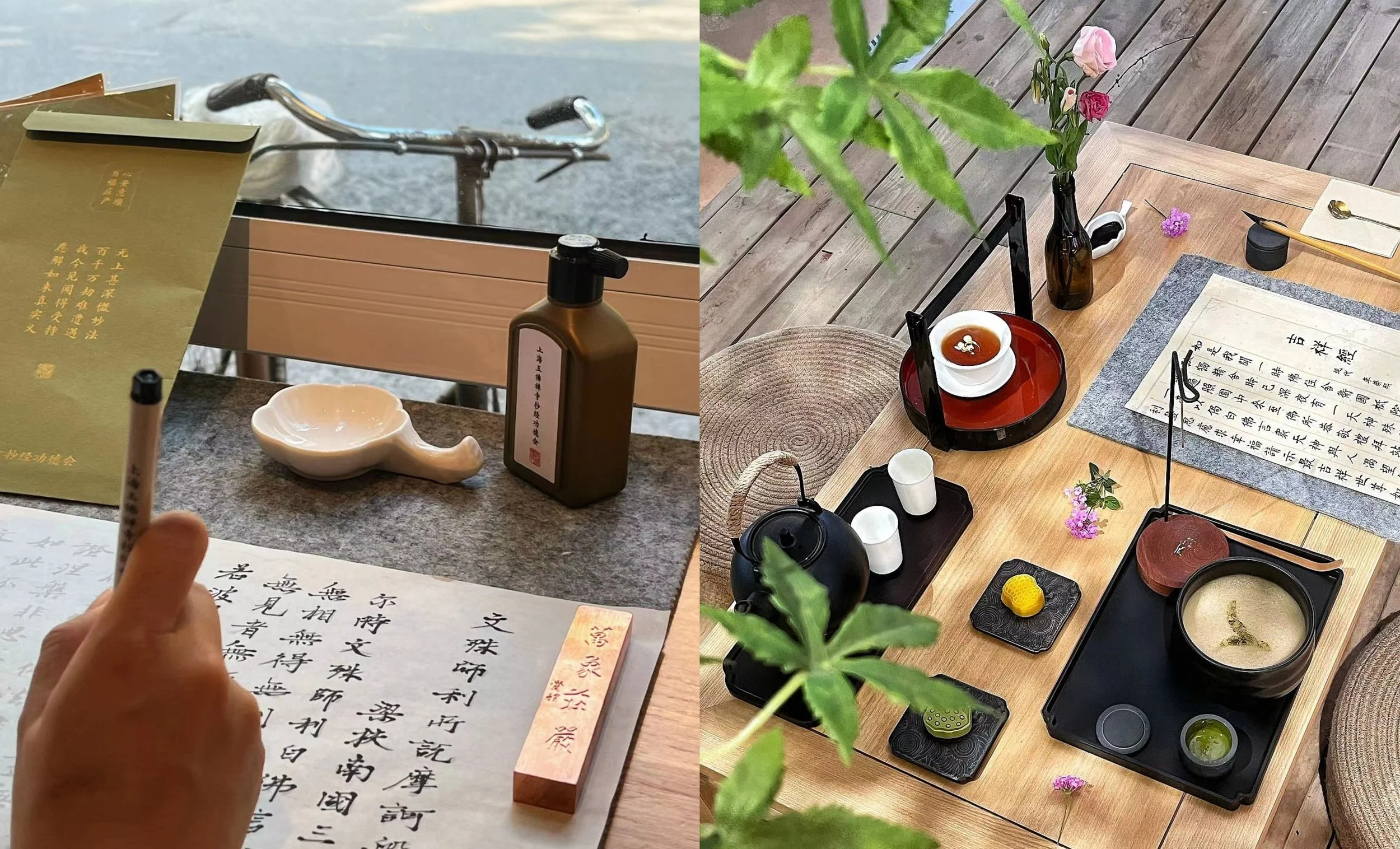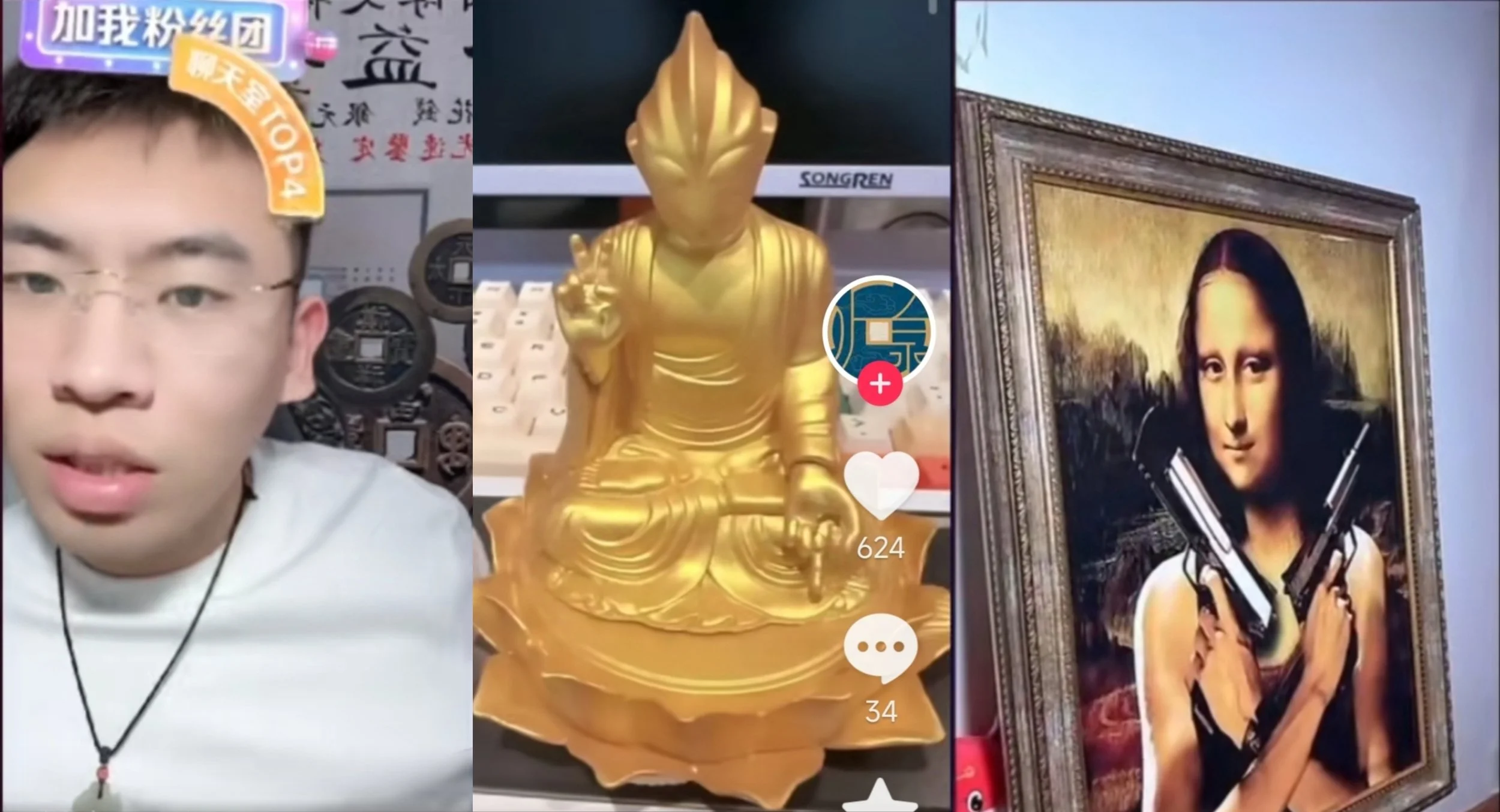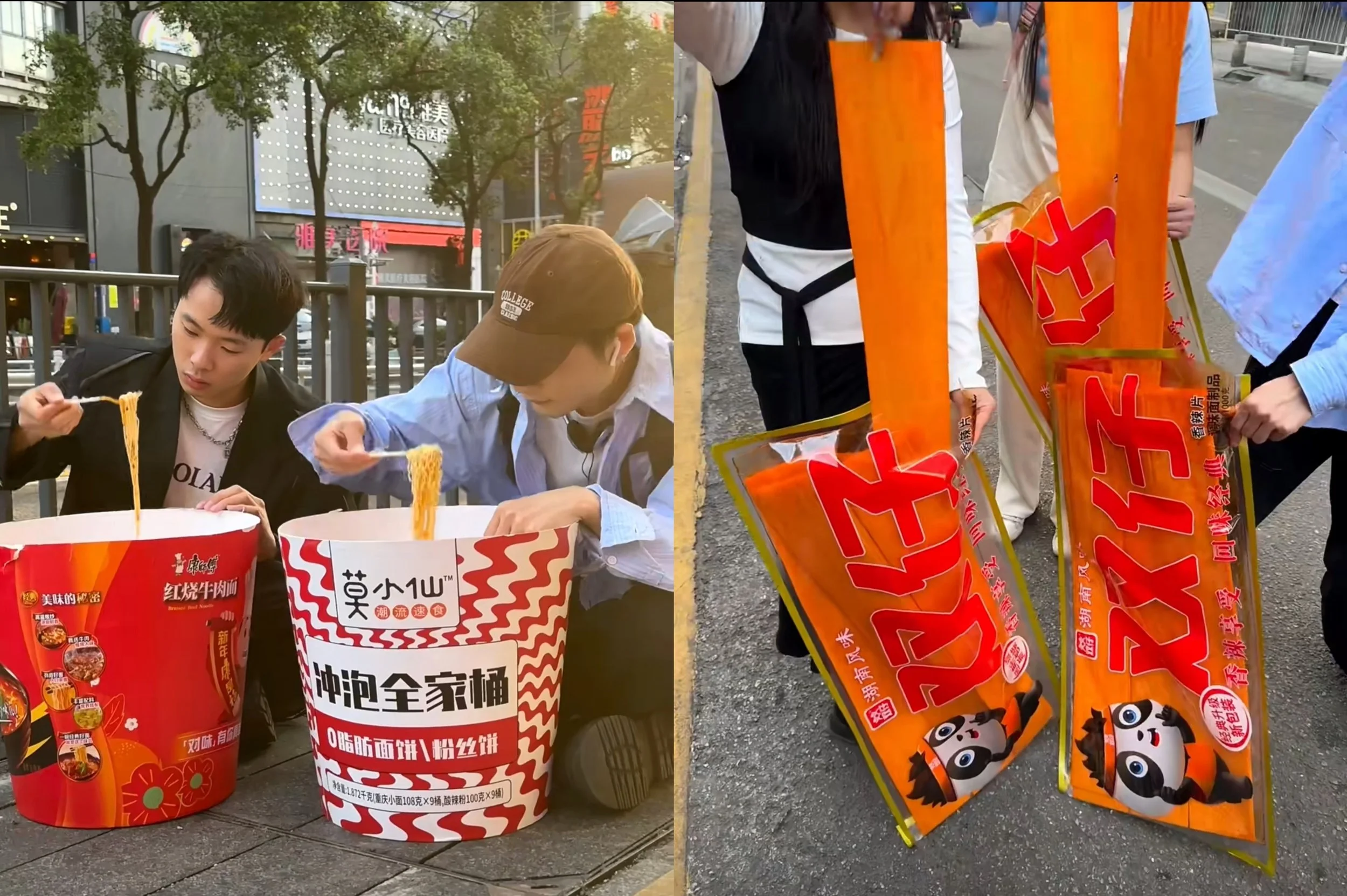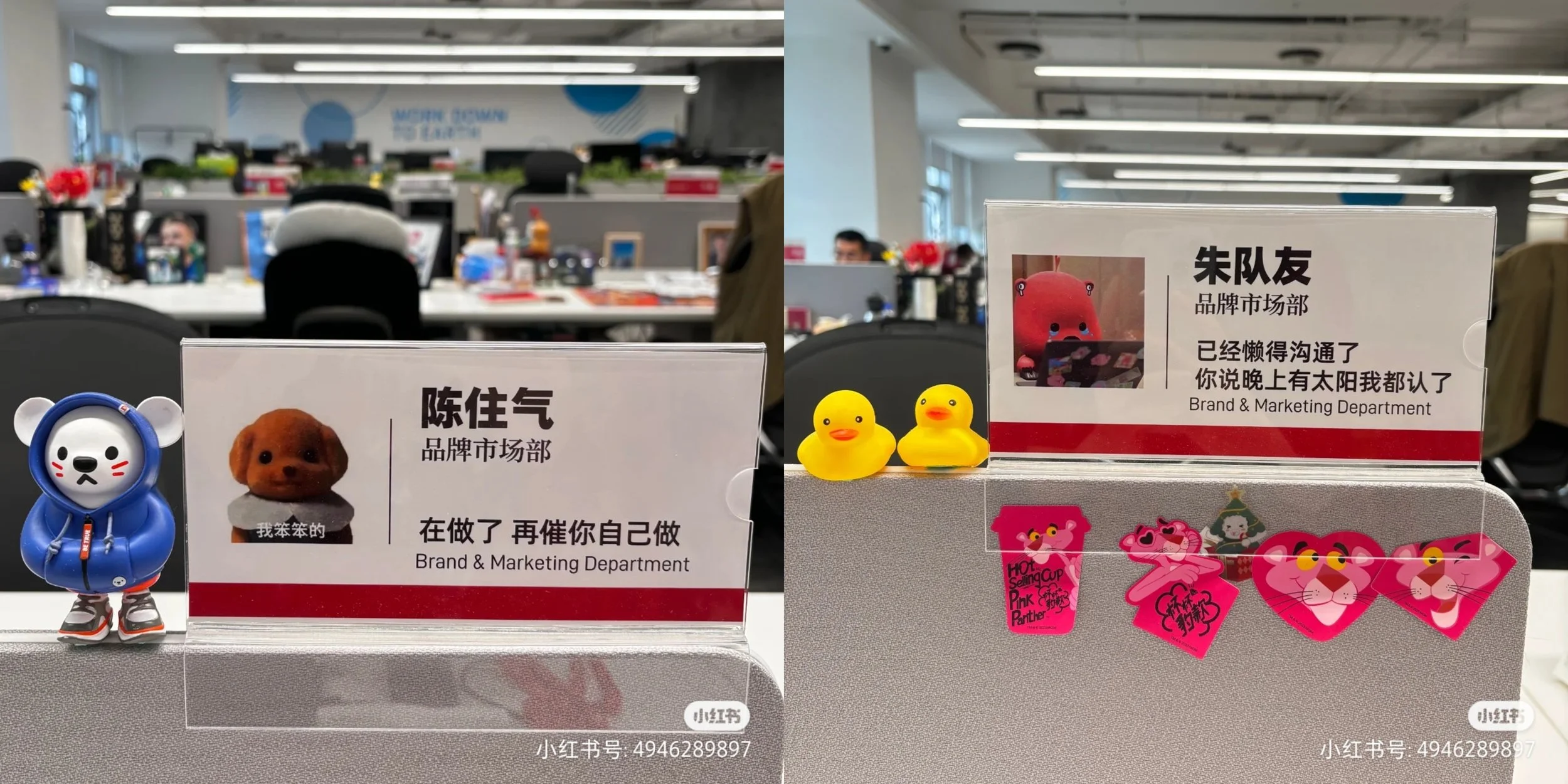Viral videos flipping guilt-based parenting narratives
A series of short videos have recently become a viral sensation in China by flipping the script on "Chinese-style parenting." These videos, shot from a child's perspective, reenact typical parent-child conversations but with a twist. Instead of children hearing the usual guilt-inducing phrases, the roles are reversed, with parents experiencing a taste of the bitterness that they used to put on to their children.
Phrases like "If it weren't for you, I wouldn't even buy this," "I work every day for you," and "At your age, you should be striving to get into a good (elderly) university" are echoed back to the parents. The dialogue highlights the emotional burden of guilt that many children carry under this parenting style . Chinese parents often use this parenting style to enforce mental control on their children. Rather than simply cutting off family ties (断亲) , these young people are taking it a step further, turning the tables to give their parents a lesson instead.
A typical video in which young people flip the scripts on Chinese-style guilty-based parenting. The video has received 444,000 likes, 20,000 comments, 31,000 saves and 520,000 forwards. Video: Douyin @小野依依
These videos epitomize the evolving family concepts in contemporary China. Having children is no longer a necessity, and even parent-child and kinship ties can be cut off. The family has gradually transformed from a "need-based" community into an "optional" relationship, where individuals prioritize their own needs over family obligations.
Elderly influencers provide a counter-narrative to China’s intense work culture, proving that seniors can live life on their own terms, which is proving endearing to young Chinese consumers often labelled as “fragile youth”
Xianyu has evolved from a second-hand marketplace into a hub for youth culture, side hustles, and digital innovation, offering valuable insights for foreign brands in China
AI has become an integrated tool for marketing in China 2025, making marketing easier at a surface level, but harder than it has ever been before. How do brands utilise AI to stand out?
A concise summary of last month's key marketing developments in China, highlighting valuable insights and their implications for brands.
A concise summary of last month's key marketing developments in China, highlighting valuable insights and their implications for brands.
With every major app in China integrating social, e-commerce, entertainment, livestreaming, and video into their suite, what sets RED apart as a marketing channel for brands?
After spreading over social media, China’s youth have demonstrated their need for community and adventure en masse causing a stir on their 50km group ride
China Skinny’s review of key marketing trends and lessons we observed over the month of October 2024.
China is experiencing a shift—or even a dilemma—in its bricks-and-mortar retail landscape. While high-end malls are seeing declines, non-standard commercial spaces are on the rise. Among these, Beijing’s THE BOX Youth Energy Center is redefining the offline retail experience by tapping into the spending power of the younger generation.
Chinese youth embody a rich tapestry of lifestyles and values that defy easy categorization. In a social media world saturated with flashy façades and overly curated personas, many still celebrate authenticity and self-discovery. This creates opportunities for brands to craft fresh, compelling stories that resonate with their desire for genuine connection.
As new generations redefine what weddings look like, brands are seizing the moment to connect with young couples seeking authenticity and personalization.
Scripture copying, once a niche activity, is now a rising wellness trend among young people. It is becoming part of the growing "temple economy," expanding from temples to teahouses and beyond.
Traditional collectibles have become a form of social currency among young people. From spiritual comfort to stylish accessories, livestreams and e-commerce have made these pieces more accessible. And people watch appraisal livestreams for whacky collectibles as an entertainment.
Jellycat CAFÉ has taken Shanghai by storm with its limited-time pop-up. Exclusive plush toys and immersive packaging performances highlight Jellycat's unique blend of emotional value and playful creativity.
A wave of viral videos in China are flipping the script on traditional Chinese-style parenting. Filmed from a child's perspective, these clips turn guilt-inducing phrases back on parents, pushing them to reflect on their parenting approach.
Ye, the artist formerly known as Kanye West, returned to Haikou, China, after 16 years, with fans endeared by Ye's fashion as much as his music. The whole city got behind the concert, ensuring fans had an all-encompassing Ye experience during their visit to the tropical island.
China's cross-media ad spend is unlike other markets, as new data reveals. Comparing China to the US, UK, Canada, Australia and NZ highlights stark differences
Douyin provides a platform for ordinary people to build small businesses. By creating unconventional and slightly whacky livestreams and videos, they've captivated young audiences and driven significant sales, despite their simple, rough-around-the-edges style.
Xiaohongshu/RED launched the "5-Minute Workout Boost" campaign to coincide with the Paris Olympics and summer vacation, making exercise accessible and easy to fit into daily life.
Founded in 2019, Tiaohai Village (跳海酒馆) is a community-driven pub brand. Despite having around 30 locations nationwide, it's said to have achieved over ¥100 million ($14m) in revenue in 2023, together with over 200 highly active online alcohol communities. Check it out to learn about what sets Tiaohai apart from other pubs and how it truly connects with Chinese young people emotionally.
On August 20, the game Black Myth: Wukong officially launched. As China’s first 3A title, it has not only taken the Chinese gaming industry, social media, and stock market by storm, but has also gained worldwide attention.
White-collar workers looking to lose weight are bringing one-cup mini lunches to work. Though just a few bites in size, they are tasty and nutritious. Lawson has tapped into this trend by launching their mini bento meals…
Snacks are getting supersized and catching attention on social media for their social appeal. With giant snacks, brands also enjoy greater exposure as well.
New types of bloggers called matchmaking analysts - the Sherlock Holmes of the dating world - are capturing much attention in China’s social media. There are the reasons for their popularity, but also concerns…
Despite the Paris Olympics getting mixed reviews in China so far, the opportunities for brands to align with sports to connect with consumers is large, and growing
As mental health issues such as work stress, unemployment and poverty continue to come to the fore, more and more young Chinese are pursuing emotional healing.
‘Crazy ID Badges’ among post-00s white collars have become a trending topic on Xiaohongshu. Many FMCG brands have jumped on it to winning favour from the young consumers.
Chinese consumers generally prefer smaller formats, but this summer is seeing a slew of giant gulps for everything from watermelon juice to ice coffee, meeting consumers needs for different occasions
This spring and summer, wearing bandana head scarves for outdoor trips has become popular, making them a must-have fashion item for 'dopamine girls.'
Chinese youth have embraced Jellycats, stones, even mango seeds as another kind of ‘pets.‘ These alternatives provide emotional value without the time-consuming and attentive pet-caring routines.






























